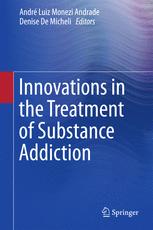

Most ebook files are in PDF format, so you can easily read them using various software such as Foxit Reader or directly on the Google Chrome browser.
Some ebook files are released by publishers in other formats such as .awz, .mobi, .epub, .fb2, etc. You may need to install specific software to read these formats on mobile/PC, such as Calibre.
Please read the tutorial at this link: https://ebookbell.com/faq
We offer FREE conversion to the popular formats you request; however, this may take some time. Therefore, right after payment, please email us, and we will try to provide the service as quickly as possible.
For some exceptional file formats or broken links (if any), please refrain from opening any disputes. Instead, email us first, and we will try to assist within a maximum of 6 hours.
EbookBell Team

4.7
66 reviewsEmerging approaches to treating addictions and minimizing relapse are spotlighted in this idea-packed volume, as alternatives or adjuncts to standard psychological and pharmacological therapies. Its biopsychosocial perspective delves into the causes and processes of chemical dependence, and the clinical characteristics it shares with other addictions (e.g., food, sex, gambling, online activities), to identify client needs that substance abuse may fulfill. Accordingly, the diverse modalities featured here address substance addiction on multiple levels, offering clients physical or mental stimulation and/or emotional relief as well as affording different degrees of autonomy. Methods can be mixed and matched to reinforce treatment goals, and clinicians can tailor treatment to individual issues and interests to assure clients nuanced and meaningful care.
Included in the coverage:
· Use of herbal medicine to treat drug addiction.
· EMDR therapy and the treatment of substance abuse and addiction.
· Evaluating the change processes in drug users’ interventions.· Web-based interventions for substance abuse.
· Physical exercise and treatment of addiction.
· Mindfulness to reduce the anxiety during the abstinence
· Neurofeedback to deal with craving and anxiety symptoms
Psychologists, psychiatrists, clinical social workers, and addiction counselors and educators will find Innovations in the Treatment of Substance Addiction a valuable sourcebook for understanding addiction—and intervention—in its wider context.